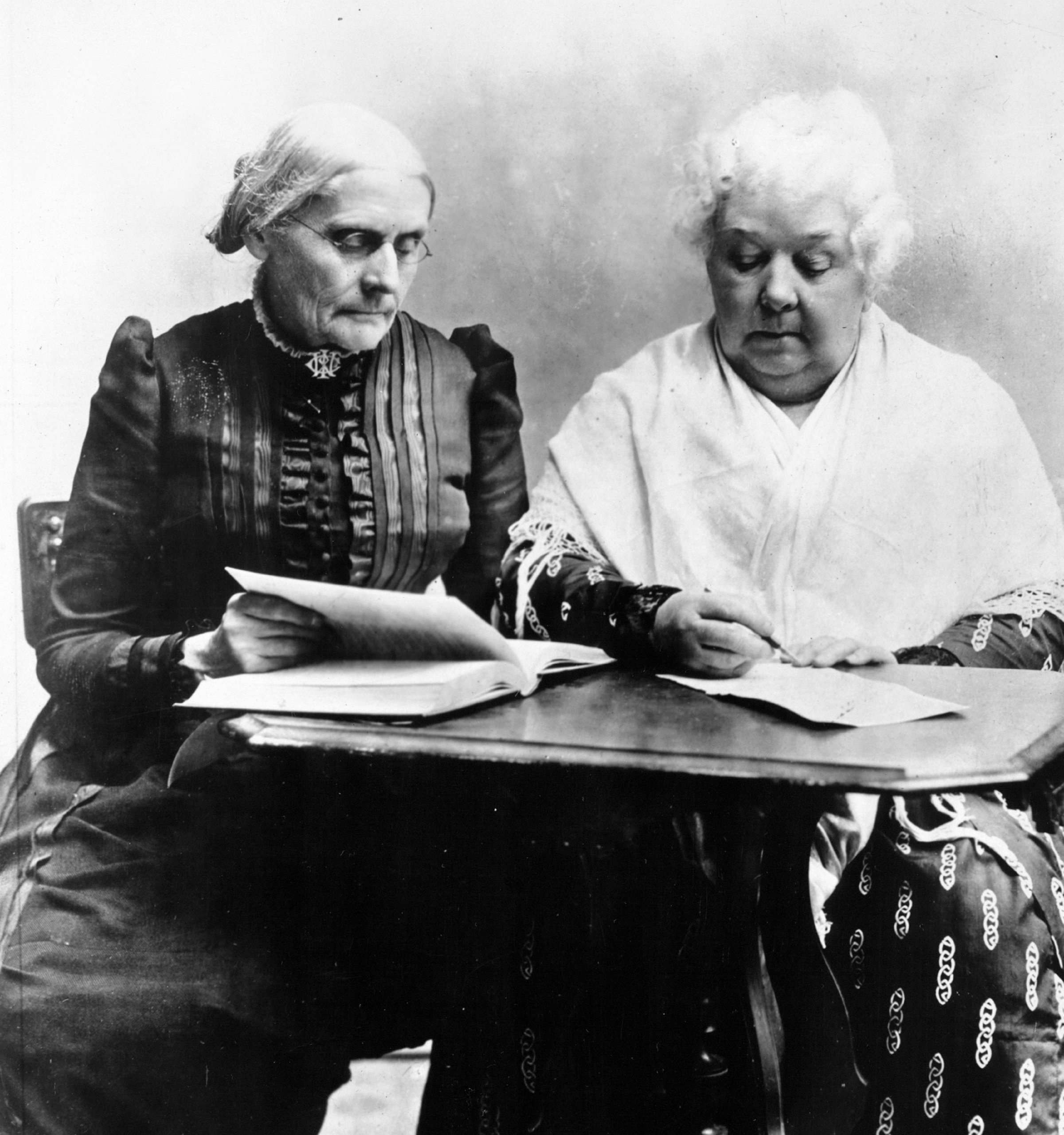
For many people, the word “suffragette” conjures up images of the frothy Mrs. Banks in the movie Mary Poppins, who returns home from a London rally for women’s rights to tell her sister suffragettes’ (her nanny and housemaids) to “take heart for Mrs. Pankhurst has been clapped in irons again!”
The suffragette movement is the subject of the new movie Suffragette. Starring Carey Mulligan, Helena Bonham Carter and Meryl Streep, it tells the story of the struggle for women’s rights in Great Britain from the viewpoint of a young, working-class mother. Thousands of women like her fought courageously for the right to vote so they could use that power to improve the economic and social conditions that oppressed them and their families.
In America, too, brave and farsighted suffragettes worked to obtain the right to vote, and thus the right to true citizenship, for women. Their victory paved the way for the full participation by women in the economic, social and political spheres. Our nation has been incomparably enriched by their contributions and accomplishments.
But would those early pioneers recognize the movement that claims to speak for the rights of women today?
On the issue of abortion, they would not. Many of today’s feminists see abortion as one of the touchstones of their movement. Yet many of the early leaders of the women’s suffrage movement in the U.S. believed that the rights of mother and child are inextricably linked and that the right to life and the right to vote are rooted in the inherent dignity of each human person.
The public statements of many early champions of women’s rights in the U.S. make clear their opposition. Elizabeth Cady Stanton referred to abortion as “infanticide” and wrote that “when we consider that women are treated as property, it is degrading to women that we should treat our children as property to be disposed of as we see fit.” Victoria Woodhull, the first female candidate for president, wrote: “Every woman knows that if she were free, she would never bear an unwished-for child, nor think of murdering one before its birth.” And Elizabeth Blackwell, the first woman to receive a medical degree in the U.S., wrote: “The gross perversion and destruction of motherhood by the abortionist filled me with indignation, and awakened active antagonism.”
Mrs. Pankhurst’s American counterpart, Susan B. Anthony, was a friend and heroine to many of these women. Along with Cady Stanton, she founded The Revolution newspaper, which served as a mouthpiece for the American women’s suffrage movement. Anthony funded the paper herself, refusing the capital that would have resulted from allowing advertisements for “restellism,” as abortion was then called. The Revolution published a piece, attributable to Anthony, that said abortion was a choice that would burden both a woman’s “conscience in life and soul in death” and also ultimately an exploitation of women.
Anthony has been my organization’s namesake since 1992, when we began the Susan B. Anthony List to amplify the voices of pro-life women in federal and statewide office. She understood that the rights of one group could not be built upon the broken rights of another. That’s why, for example, she worked so closely with her friend Frederick Douglass to advance not only women’s suffrage, but voting rights for African Americans as well. “Men, their rights and nothing more; women, their rights and nothing less,” she said.
Today, our mission is equally simple. Women who join us reject the idea that feminism requires them to be at war with their own children, or to direct their tax dollars to organizations that perform abortions. In so doing, they honor the legacy of the original champions of women’s rights. As Mrs. Banks would have said, “Well done, sister suffragettes.”
More Must-Reads from TIME
- Why Trump’s Message Worked on Latino Men
- What Trump’s Win Could Mean for Housing
- The 100 Must-Read Books of 2024
- Sleep Doctors Share the 1 Tip That’s Changed Their Lives
- Column: Let’s Bring Back Romance
- What It’s Like to Have Long COVID As a Kid
- FX’s Say Nothing Is the Must-Watch Political Thriller of 2024
- Merle Bombardieri Is Helping People Make the Baby Decision
Contact us at letters@time.com